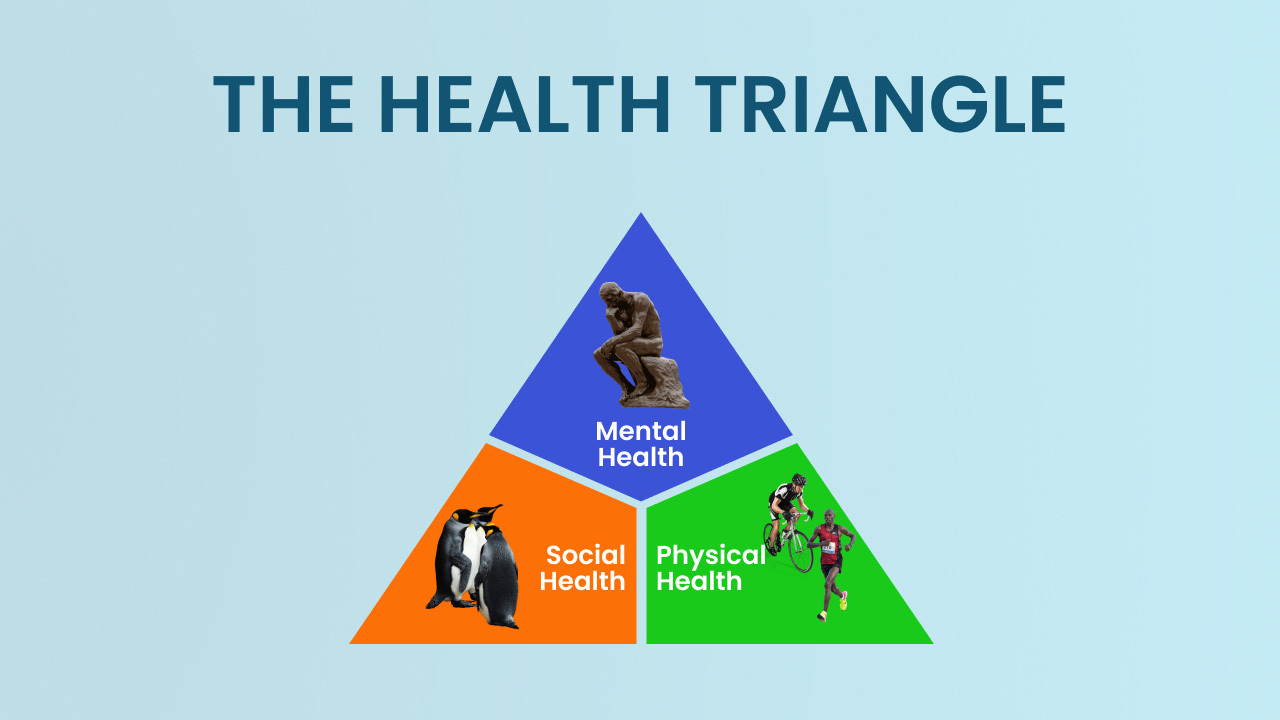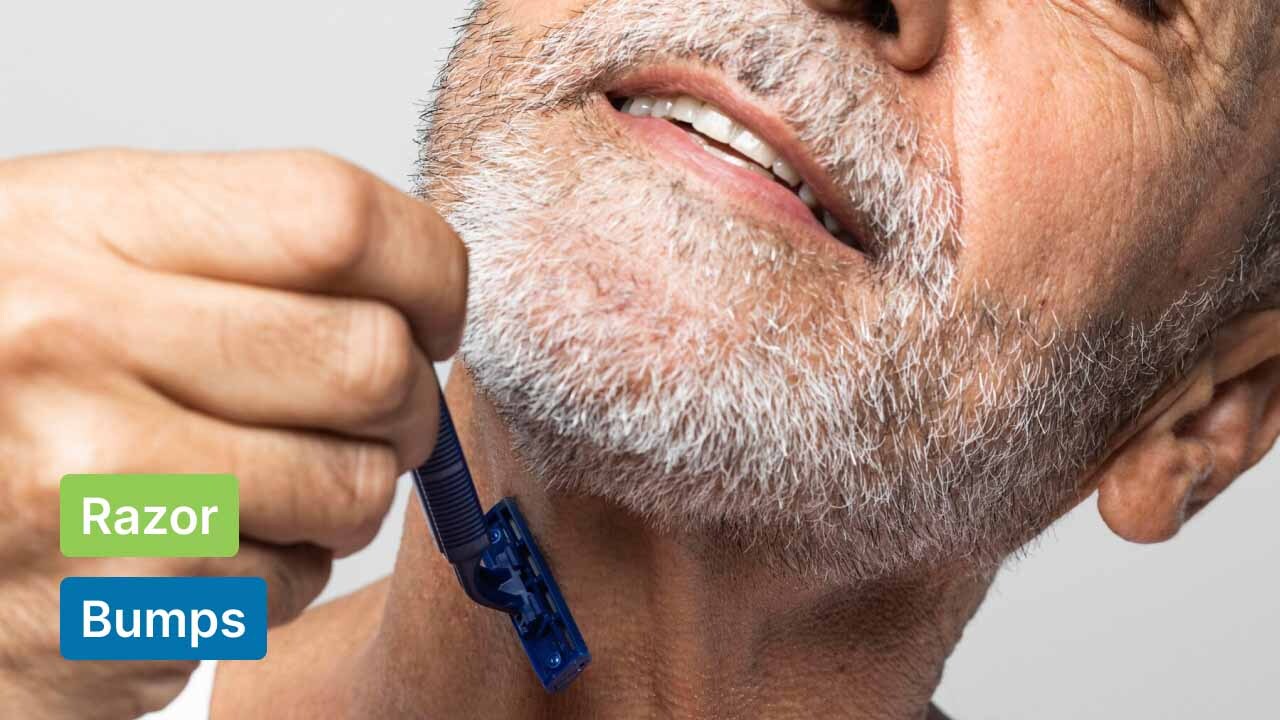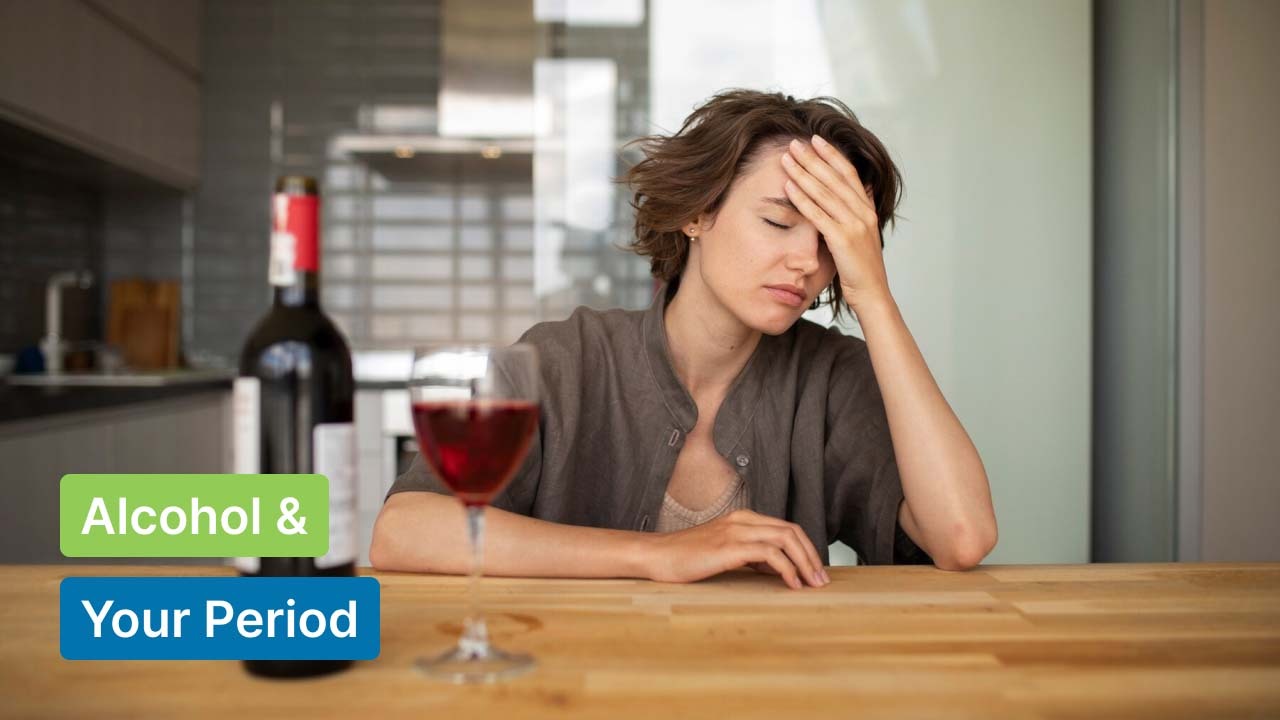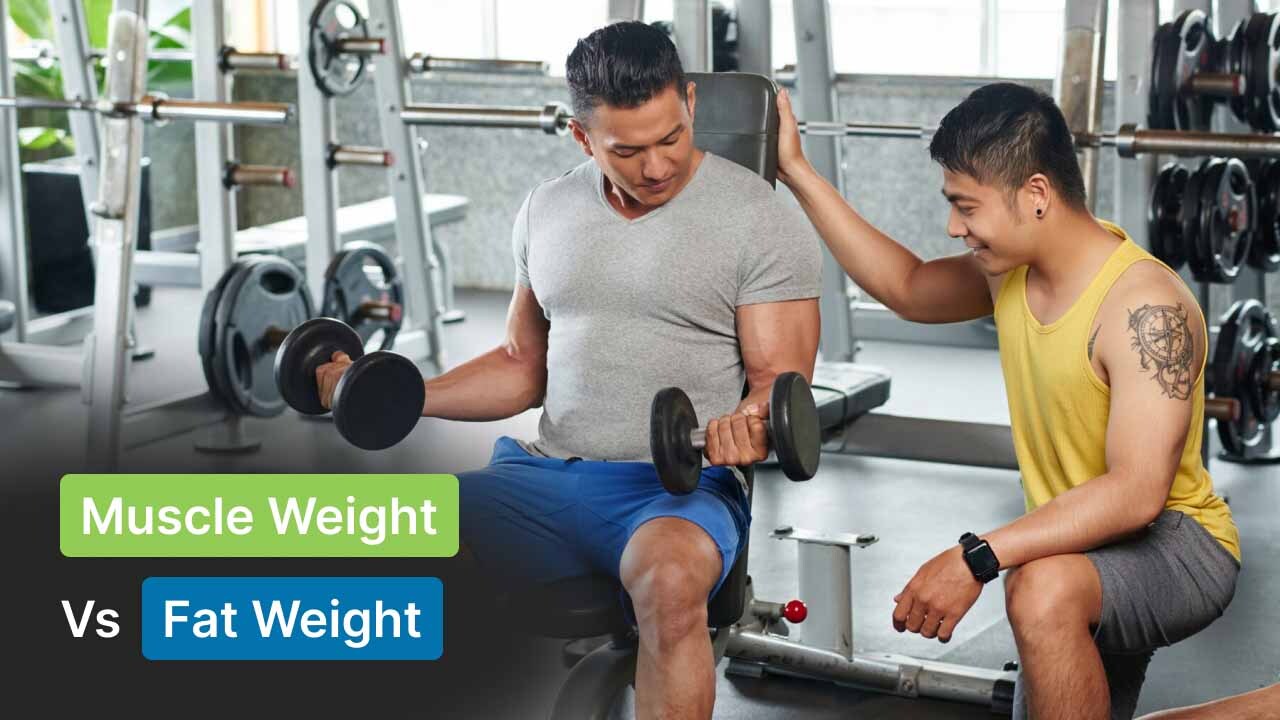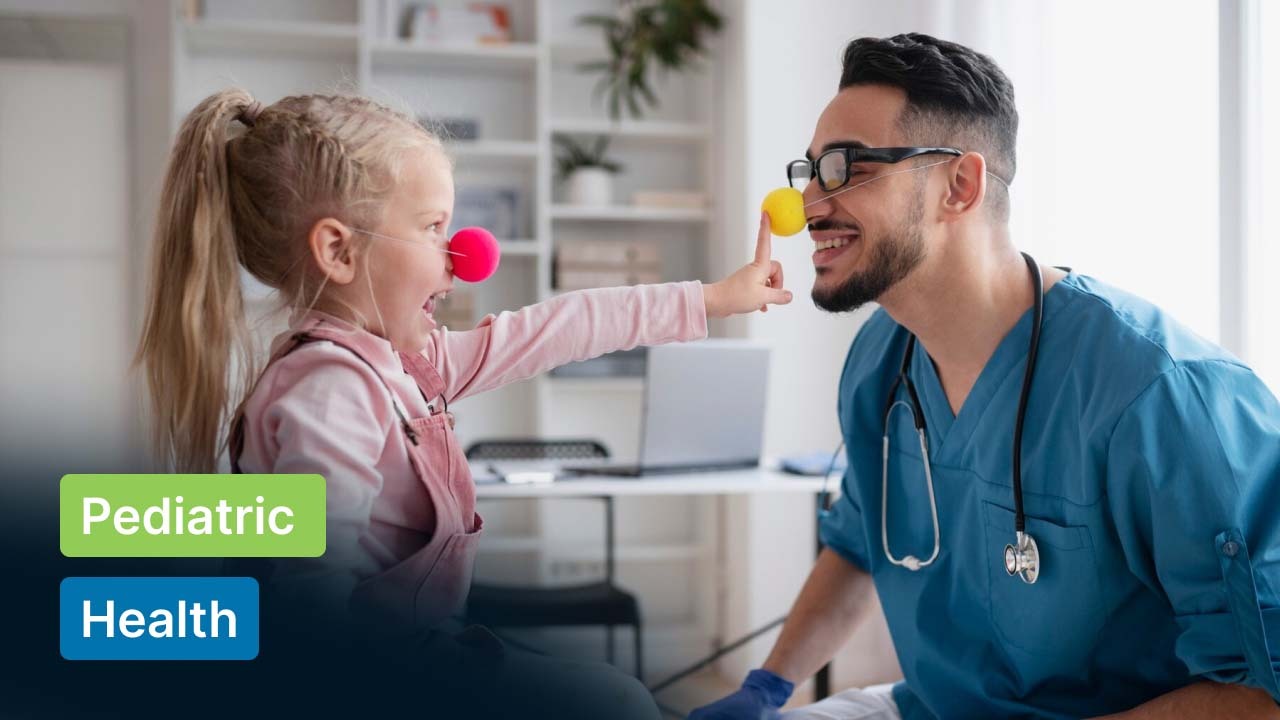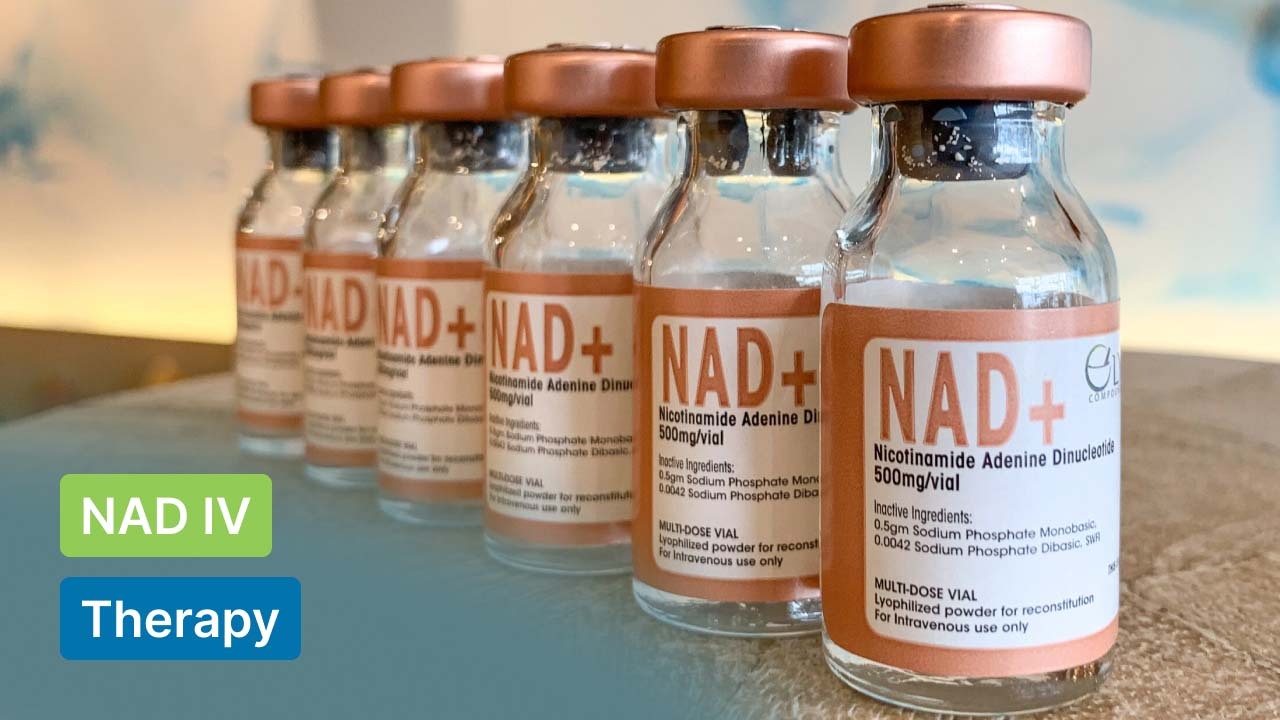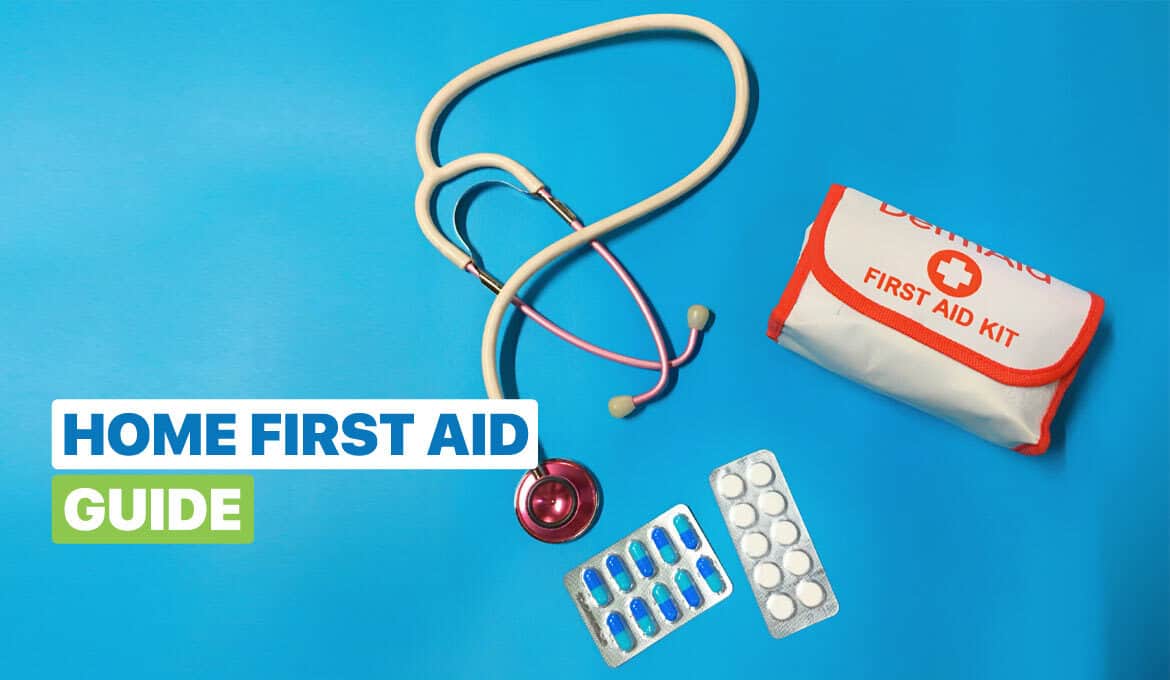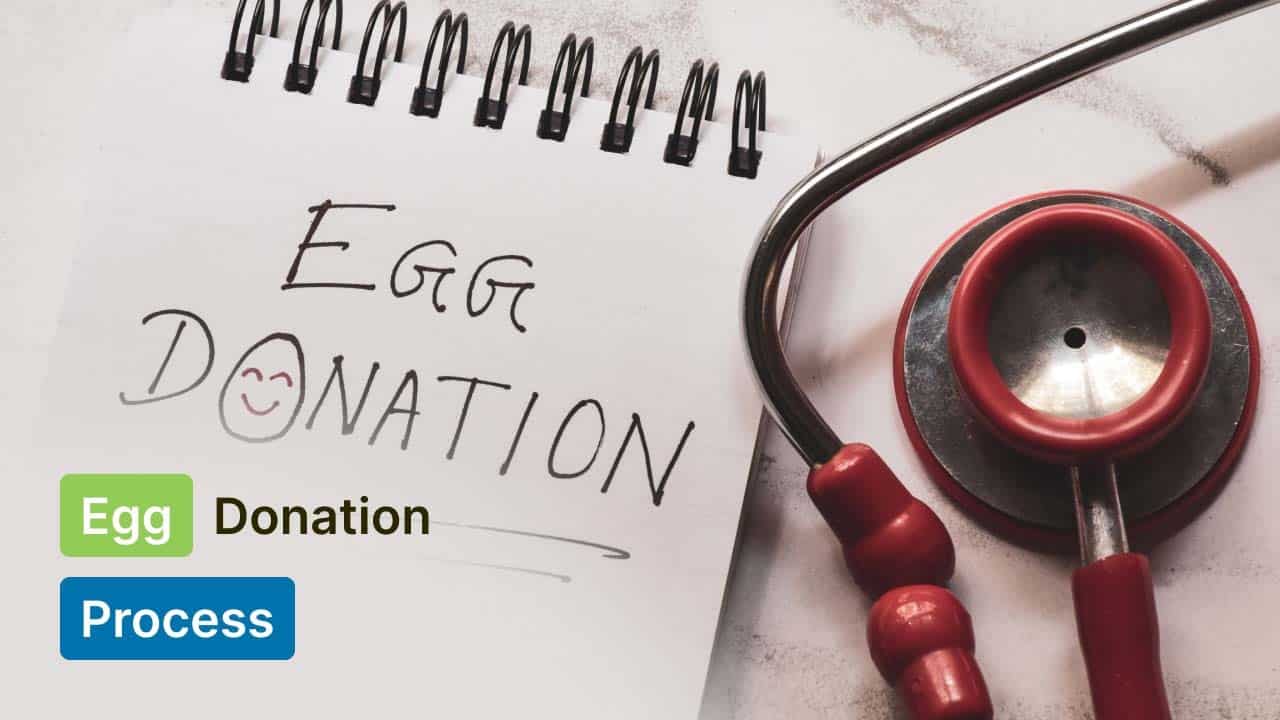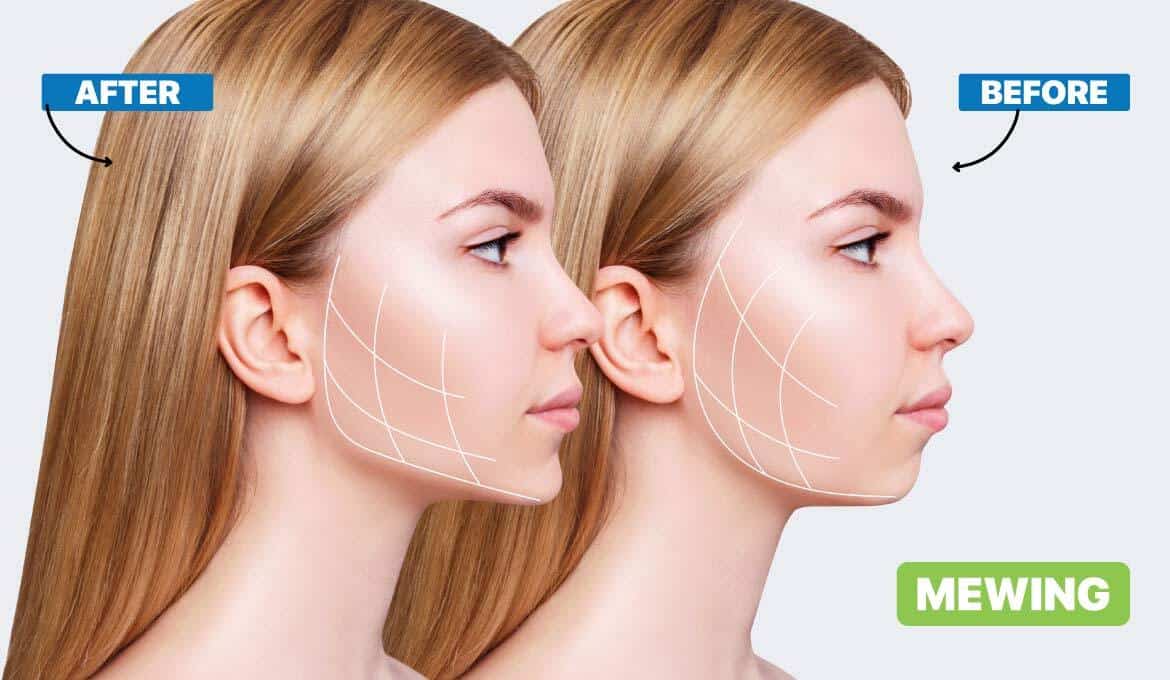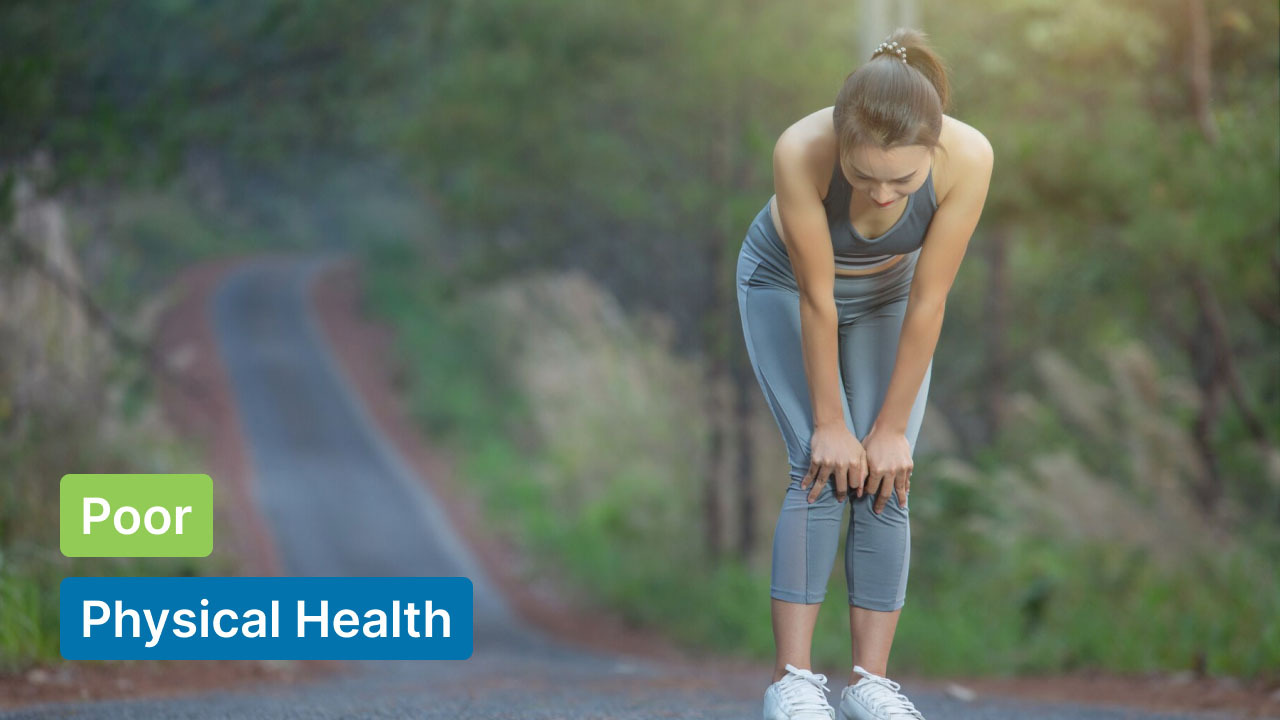
Health is our top priority, and when we say health, we often refer to physical health. But did you know the perks of a healthy, active lifestyle go beyond just the physical; they are mental, emotional, and social as well?
The World Health Organization (WHO) defines health as “a state of complete physical, mental, and social well-being and not merely the absence of disease or infirmity.” This shows that every aspect of health is closely linked to each other.
Our physical health affects how we feel, react, and think. It's normal to feel depressed or low when we are physically sick. Due to poor physical health, your social life can also be affected badly. That means physical and social health are intricately connected.
In this blog, we will explain how poor physical health may affect your social health and provide tips to help improve your poor physical well-being.
What is Physical Health?
Before we move on to how poor physical health can affect your social well-being, let’s first understand the basic definitions of each.
The term physical health refers to the physical state of your body and how well it's functioning. It involves everything from being disease-free to maintaining a good level of fitness.
In other words, representing one dimension of overall well-being has to do with how your body grows, moves, feels, how you care for it, and what you put into it.
Some of the signs of poor physical health are:
- Headaches
- Frequent mood swings
- Shortness of breath
- Always tired
- Joint pains
- Sudden weight loss or weight gain
- Decreased appetite
- Insufficient sleep or insomnia
- Bloating and gas
What is Social Health?
Social health is defined by your ability to build meaningful connections with family, friends, life partners, and co-workers. Cultivating human connection is just as important as doing exercise or eating nutritious food.
Having a strong interpersonal relationship and the capacity to maintain social connections is a sign of good social health. It's less visible, yet it can influence your overall health and how you feel about your life.
Good social health supports better mental and physical health. Notice how these three are related. But having a good social life doesn't mean you should push yourself to get out or go to a party.
Remember that social health is more about how connected you feel, not about the number of friends or relationships you have. Let that sink in.
Some of the signs of poor social health are:
- Feelings of loneliness
- Isolation from others, even family
- Depression and anxiety
- Anger and frustration
- Persistent mood swings
Explain How Poor Physical Health May Affect Your Social Health.
They say to take care of your physical and mental health – Your quality of life depends on it. This is actually true. Research found that strong social ties are linked to a longer life and better well-being.
In contrast, loneliness and social isolation are connected to poorer physical health and depression.
When you’re physically inactive or sick, here’s how it can affect your social health:
1. Low energy levels and decreased motivation –
When you're sick, you may feel you've lost energy and are unable to move. You begin to feel drained out and tired all the time. Hence, this may make it difficult for you to go out and participate in family or social events, let alone engage in conversations with people.
Not only that, but you gradually lose motivation to make new friends, maintain relationships, and spend time with them. As a result, you feel cut off and isolated from your life.
2. Misunderstanding and social stigma
Sadly, there are negative stereotypes that exist in today's society regarding health conditions and disabilities, even in 2024!
Sometimes, people with physical conditions may face social stigma and negative stereotypes. Because of these sick roles, people may feel socially isolated, worthless, or even bullied.
This societal perception and interpretation of illness may worsen the social health of a person.
3. Emotional distress –
Yes, your poor physical condition may affect you emotionally as well. This, in turn, affects your social well-being. In fact, some physical health conditions can increase the risk of developing mental health issues like depression and anxiety. Nearly 70% of people suffer from this.
Chronic pain, discomfort, or psychological distress caused by your disease/illness can all lead to increased stress. Other examples of medical problems that can be linked to anxiety include heart disease, diabetes, and hyperthyroidism.
These emotional distresses may hinder you from creating and maintaining healthy social connections. This is because you may struggle with self-esteem or fear being a burden to others.
4. Changes in appearance
Poor physical health can result in unhealthy body composition, which in turn may lower your self-esteem and self-confidence.
This is extremely common in today’s generation, where physical appearance and looks are prioritized over characters. If you have poor self-esteem, it is more difficult to form healthy social bonds.
5. Limited mobility and low participation –
When you're physically weak or have poor physical health, you limit your participation in any social activities. This, in turn, results in weariness, weakness, and pain.
For example, a person with chronic back pain or knee injury might not be able to go out and play football with friends. This makes them feel alone and cut off from society.
6. Reduced self-esteem –
Let's admit it. Being social is more fun when you are confident in yourself and have a positive self-image. Experts say that confidence is key in social life, and physical activity helps with that.
If you have poor physical health, it may impact your self-confidence, as it might make you less motivated to interact with others and weak in relationships.
For example, someone with severe acne or a physical handicap may feel humiliated or self-conscious about their looks and avoid attending social events.
How To Improve Your Physical Health?
Given how poor health can affect your social life, it’s time for you to start making changes in your physical health.
If you’ve made up your mind, here are a few actionable tips to help you feel better in your body and be active:
i) Stay hydrated –
Water is key to many things – glowing skin, gut health, heart health, weight management, you name it. Water also helps regulate your body temperature and protects organs and tissues.
It may come as a surprise, but many people do not drink enough water to stay hydrated. We get it; your life can be hectic sometimes, but fueling up your body is also important.
Be it at work or home, always keep a 1-liter bottle of water near you as a reminder to take regular sips. Also, pay attention to your body's own signals, and drink water anytime you feel thirsty.
ii) Commit to a well-balanced diet –
Putting fuel into your body is the best way to feel energetic. Nutrients are fuel to the human body. That being said, try making nutritious food choices in your daily routine and avoid unhealthy foods. Ideally, aim to eat plenty of:
- Fresh vegetables and fruits (e.g., broccoli, spinach, carrots, blueberries, citrus fruits)
- Protein (e.g., meat, nuts, eggs, seeds)
- Healthy fats (e.g., fatty fish, olive oil, avocado)
- Healthy carbs (e.g., beans, sweet potatoes, peas)
iii) Get better sleep
Sleep is the body's way of hitting the reset button. Pushing yourself too hard can make you exhausted, resulting in burnout and physical strain.
Research shows that poor sleep quality can lead to many health conditions like hypertension, diabetes, obesity, depression, and heart attack. It also affects your ability to remember and control emotions and attention.
Experts say people tend to fall asleep faster and get better quality sleep if they stick to a schedule. So, make an effort to go to sleep and wake up around the same time every day. Aim for 7 to 9 hours of sound sleep to get optimal rest and rejuvenate.
iv) Exercise regularly
No, you do not need to hit the gym for this. Any physical activity like dancing, exercising, stretching, cardio, and even walking can help you stay active.
When you move your body, you release good hormones like serotonin and endorphins that distract you from negative thoughts and help you cope with stress and worry. They also keep you relaxed.
Regular exercise strengthens your muscles and bones, which helps relieve common pains, including back pain and arthritis. Stretching also helps big time.
Stretch for 10-15 minutes before and after workout. If you're not working out that day, take some stretch breaks. Find a quiet spot in the office or home where you will not be interrupted.
v) Go for regular health checkups
To be honest, actually knowing you're healthy is far better than simply assuming you are. Especially if you know certain diseases run in your family.
The American Academy of Family Physicians (AAFP) recommends that everyone get a checkup at least once a year. Twice a year is also fine.
Even if you feel healthy, it's always a good idea to visit your doctor regularly. By getting the proper health services, screenings, and treatment, you are taking big steps toward living a better and longer life.
vi) Manage your stress –
Life has its highs and lows. There are circumstances when we feel overwhelmed and exhausted. While this is completely normal, it can have a huge impact on your physical and mental health.
So, dedicate some time to managing your stress level. There are plenty of ways to do that. You can simply go for a 10-minute walk, engage in hobbies, spend time with family and friends, or read a book.
This will make you feel calmer, refreshed, and energized. Do it as long as you feel better.
vii) Practice mindfulness
Taking care of your mental health also matters. Keep your mind where your hands are. Always be present at the moment. Sometimes, being mindful is easier said than done. You can do it even while you're sitting on a couch, working, or relaxing.
So start practicing mindfulness from today. Moreover, meditation can help you connect with yourself first before connecting with others.
viii) Quit smoking and drinking
Everyone knows smoking tobacco and drinking alcohol are terrible for our health, and they still continue doing it. If you want to take your health seriously, you have to quit. At least try to limit the intake of alcohol.
Even though drinking alcohol is often accepted in society as a fun way to unwind, relax, and socialize, excessive consumption can have serious consequences for pretty much every part of your body.
ix) Limit your sugar intake
Reduce your sugar consumption to avoid unhealthy weight gain, dental issues, & diseases like diabetes. Choose organic or natural sources of sugar like monk sweeteners and even fruits and honey.
x) Go out to get some Vitamin D and fresh air
Many of us don't get enough vitamins in our diet, especially vitamin D. This type of nutrient is found in the sun and plays an important role in boosting immunity and maintaining strong and healthy bones.
It has also been known to help fight off osteoporosis, cancer, and depression. So, head out into the sunshine for 15 minutes and get your daily dose of vitamin D.
The next time you need motivation to go out for a walk or gym, keep in mind that the little investment of time and energy you put into staying active will give impressive returns now and in the future. In essence, when you're being active, you'll find yourself having more zest for life!
Tips To Improve Your Social Health Caused By Poor Physical Health
Caring for your mental and social health when you're dealing with physical health issues can make a big difference to your overall well-being. Here are some tips you can consider:
a). Communicate often – Focus on being socially active by learning to communicate nicely with people. Try to join some group activities, clubs, and even online communities.
It's the best way to meet new people who share the same interests. Even if you're an introvert, small talk can open you up to a conversation.
b). Get a pet – Spending time with a pet cat or dog is the best idea to release stress. Playing with pets has been shown to release endorphins and promote relaxation.
Regardless of your busy schedule, take a couple of minutes to pet them and create a mindful connection.
c). Reach out to professionals for help – If your overall social health is severely affected, and nothing works in your favor, talk to a professional therapist or a certified counselor.
Speaking your heart out to them can help with processing emotions, learning how to respond, and developing coping techniques.
Final Reflections –
So now you know how poor physical health may affect your social health. Given the countless social benefits of physical activity, it simply makes sense to become more active in your own life.
If you're not taking care of your body, you're not caring for your mind. Hence, a poor mindset can set you up for a bad life both psychologically and socially. So, Start focusing on improving your physical health today!
FAQs
1. What is good physical health?
Ans: Good physical health means balanced nutrition, regular exercise, and adequate rest. Good health is also about avoiding harmful habits like alcohol and making healthy lifestyle choices that allow you to live a balanced state of mind, body as well as spirit.
2. How does physical health relate to social health?
Ans: When you're socially active and connected and have supportive relationships, you're more likely to make healthy choices. As a result, you tend to have better physical and mental health.
3. How does physical activity affect social life?
Ans: Physical activity helps develop social relationships between those with common interests. Moreover, it improves self-confidence and social skills.
4. Why do people think physical health is more important?
Ans: Working on physical health can add years to your life. Being physically active can make you feel happy and energetic throughout, improve your mental and social state, and, most importantly, make you optimistic.
5. How does physical health affect emotions?
Ans: When you're angry or depressed, your body releases certain hormones. The hormones in the brain that are responsible for physical changes in your body can affect your mood and intensify your emotional responses.
Read Also:

















